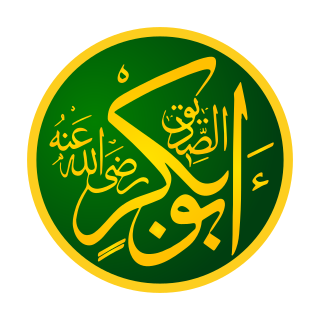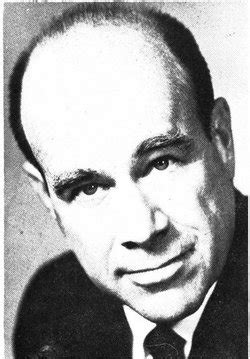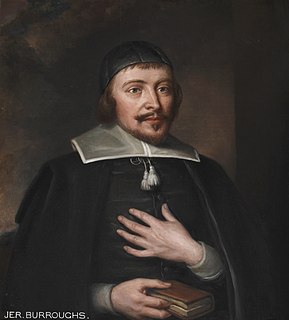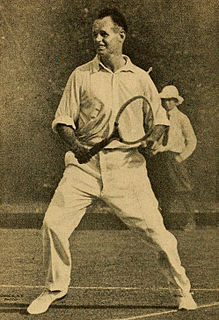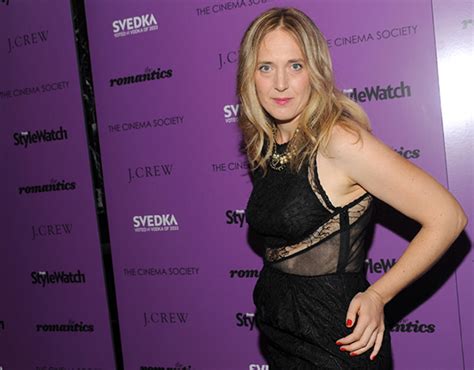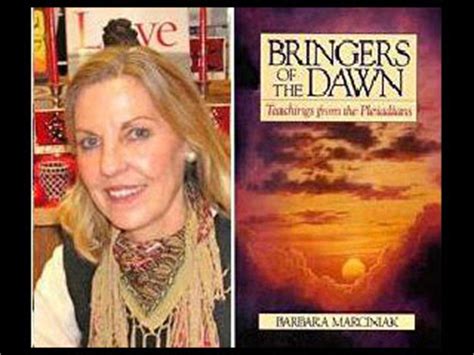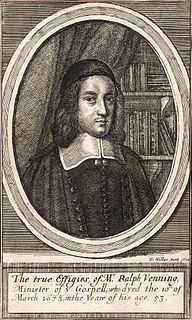Top 1200 Carnal Knowledge Quotes & Sayings - Page 19
Explore popular Carnal Knowledge quotes.
Last updated on April 20, 2025.
Remember. You are a physician. You are not a policeman nor are you a minister of religion. You must take people as they come. Remember, too that though you will generally know more about the condition than the patient, it is the patient who has the condition and this if nothing else bestows on him or her a kind of wisdom. You have the knowledge but that does not entitle you to be superior. Knowledge makes you the servant not the master.
For myself, I am interested in science and in philosophy only because I want to learn something about the riddle of the world in which we live, and the riddle of man's knowledge of that world. And I believe that only a revival of interest in these riddles can save the sciences and philosophy from an obscurantist faith in the expert's special skill and in his personal knowledge and authority.
When one tries to increase his knowledge by doing mental gymnastics over books without waiting upon God and looking to the guidance of the Holy Spirit, his soul is plainly in full swing. This will deplete his spiritual life. Because the fall of man was occasioned by seeking knowledge, God uses the foolishness of the cross to "destroy the wisdom of the wise.
The knowledge that you have emerged wiser and stronger from setbacks means that you are, ever after, secure in your ability to survive. You will never truly know yourself, or the strength of your relationships, until both have been tested by adversity. Such knowledge is a true gift, for all that it is painfully won, and it has been worth more than any qualification I ever earned.
The Christian's instincts of trust and worship are stimulated very powerfully by knowledge of the greatness of God. But this is knowledge which Christians today largely lack: and that is one reason why our faith is so feeble and our worship so flabby... When a person in the church, let alone the person in the street, uses the word God, the thought is rarely of divine majesty.
Do not try to know the truth, for knowledge by the mind is not true knowledge. But you can know what is not true-which is enough to liberate you from the false. The idea that you know what is true is dangerous, for it keeps you imprisoned in the mind. It is when you do not know, that you are free to investigate. And there can be no salvation, without investigation, because non investigation is the main cause of bondage.
Problems may be solved in the study which have baffled all those who have sought a solution by the aid of their senses. To carry the art, however, to its highest pitch, it is necessary that the reasoner should be able to use all the facts which have come to his knowledge; and this in itself implies, as you will readily see, a possession of all knowledge, which, even in these days of free education and encyclopaedias, is a somewhat rare accomplishment.
Pleasure is not the goal of man, but knowledge. Pleasure and happiness comes to an end. It is a mistake to suppose that pleasure is the goal. The cause of all the miseries we have in the world is that men foolishly think pleasure to be the ideal to strive for. After a time man finds that it is not happiness, but knowledge, towards which he is going, and that both pleasure and pain are great teachers.
...God does not possess a private knowledge of Himself and a separate knowledge of all the creatures in common. The universal Cause, by knowing Itself, can hardly be ignorant of the things which proceed from It and of which It is the source. This, then, is how God knows all things, not by understanding things, but by understanding Himself.
If physicists could not quote in the text, they would not feel that much was lost with respect to advancement of knowledge of the natural world. If historians could not quote, they would deem it a disastrous impediment to the communication of knowledge about the past. A luxury for physicists, quotation is a necessity for historians, indispensable to historiography.
If one writing contributed more than any other to the framework in which this work Sowell's Knowledge and Decisions developed, it would be an essay entitled 'The Use of Knowledge in Society,' published in the American Economic Review of September 1945, and written by F. A. Hayek . . In this plain and apparently simple essay was a deeply penetrating insight into the way societies function and malfunction, and clues as to why they are so often and so profoundly misunderstood.
There was something terribly enthralling in the exercise of influence. No other activity was like it. To project one's soul into some gracious form, and let it tarry there for a moment; to hear one's own intellectual views echoed back to one with all the added music of passion and youth; to convey one's temperament into another as though it were a subtle fluid or a strange perfume: there was a real joy in that - perhaps the most satisfying joy left to us in an age so limited and vulgar as our own, an age grossly carnal in its pleasures, and grossly common in its aims.
There are three kinds of nature in man, as Nicetas Stethatos further explains: the carnal man, who wants to live for his own pleasure, even if it harms others; the natural man, who wants to please both himself and others; and the spiritual man, who wants to please only God, even if it harms himself. The first is lower than human nature, the second is normal, the third is above nature; it is life in Christ.
The barbarians, who possessed no books, no secular knowledge, no education, except in the schools of the clergy, and who had scarcely acquired the rudiments of religious instruction, turned with childlike attachment to men whose minds were stored with the knowledge of Scripture, of Cicero, of St. Augustine; and in the scanty world of their ideas, the Church was felt to be something infinitely vaster, stronger, holier than their newly founded States.
In our learning, let us not neglect the fountain of revelation. The scriptures and the words of modern-day apostles and prophets are the sources of wisdom, divine knowledge, and personal revelation to help us find answers to all the challenges in life. Let us learn of Christ; let us seek out that knowledge which leads to peace, truth, and the sublime mysteries of eternity.
Now this is a mystery to a carnal heart. They can see no such thing; perhaps they think God loves them when he prospers them and makes them rich, but they think God loves them not when he afflicts them. That is a mystery, but grace instructs men in that mystery, grace enables men to see love in the very frown of God's face, and so come to receive contentment.
When the soul is solidly rooted in... peacefulness, when it is freed of the bonds of every carnal urge, when the unshaking thrust of the heart is toward the one supreme Good, then the words of the apostle will be fulfilled. 'Pray without ceasing,' he said (I Thes. 5:17). 'In every place lift up pure hands, with no anger and no rivalry' (I Tim 2:8). Sensibility is, so to speak, absorbed by this purity. It is reshaped in the likeness of the spiritual and the angelic so that all its dealings, all its activity will be prayer, utterly pure, utterly without tarnish.
There are some who do not learn, and who do not improve as fast as they might, because their eyes and their hearts are not upon God; they do not reflect neither do they have that knowledge which they might have; they miss a good deal which they might receive. We have got to obtain knowledge before we obtain permanent happiness; we have got to be wide awake in the things of God.
The prophet Isaiah ... points out what will be the cause of this change; for he says that hatred, quarrel, and fighting will come to an end, because men will have a true knowledge of God. "They shall not hurt nor destroy in all my holy mountain: for the earth shall be full of the knowledge of the Lord, as the waters which cover the sea" (Isa. xi. ver. 9) Note it.
Men look on knowledge which they learn--or might learn--from others as they do on the most beautiful structures which are not their own: in outward objects, they would rather behold their own hogsty than their neighbor's palace; and in mental ones, would prefer one grain of knowledge gained by their own observation to all the wisdom of a thousand Solomons.
Where faith commences, science ends. Both these arts of the human mind must be strictly kept apart from each other. Faith has its origin in the poetic imagination; knowledge, on the other hand, originates in the reasoning intelligence of man. Science has to pluck the blessed fruits from the tree of knowledge, unconcerned whether these conquests trench upon the poetical imaginings of faith or not.
The mystery of sound is mysticism; the harmony of life is religion. The knowledge of vibrations is metaphysics, the analysis of atoms is science, and their harmonious grouping is art. The rhythm of form is poetry, and the rhythm of sound is music. This shows that music is the art of arts and the science of allsciences; and it contains the fountain of all knowledge within itself.
But while property is considered as the basis of the freedom of the American yeomanry, there are other auxiliary supports; among which is the information of the people. In no country, is education so general - in no country, have the body of the people such a knowledge of the rights of men and the principles of government. This knowledge, joined with a keen sense of liberty and a watchful jealousy, will guard our constitutions and awaken the people to an instantaneous resistance of encroachments.
I really see no harm which can come of giving our children a little knowledge of physiology. ... The instruction must be real, based upon observation, eked out by good explanatory diagrams and models, and conveyed by a teacher whose own knowledge has been acquired by a study of the facts; and not the mere catechismal parrot-work which too often usurps the place of elementary teaching.
[M]any people would accept that we do not really have knowledge of the world; we have knowledge only of our representations of the world. Yet we seem condemned by our consitution to treat these representations as if they were the world, for our everyday experience feels as if it were of a given and immediate world.
In order to exert influence over people, there were other things that could be used besides love. Knowledge seemed to be an equally strong force, perhaps even stronger. Whoever possessed knowledge not only had power over the changeable passions of people, but also power over their thinking, over their minds, hearts and souls.
Further, Dr. Gold said with a straight face, the pill at optimum dosage could have the side effect of impotence. Until that moment, although I'd had some trouble with his personality, I had not thought him totally lacking in perspicacity; now I was not all sure. Putting myself in Dr. Gold's shoes, I wondered if he seriously thought that this juiceless and ravaged semi-invalid with the shuffle and the ancient wheeze woke up each morning from his Halcion sleep eager for carnal fun.
One of the goals of scientific theorising is to develop concepts which are adequate to the phenomena under study. In my view, things should work the same way in epistemology. We want to know what knowledge actually amounts to, not what our folk concept of knowledge is, since, just as with our pretheoretical concept of acidity, it might contain all sorts of misunderstandings and leave out all manner of important things.
All political theories assume, of course, that most individuals are very ignorant. Those who plead for liberty differ from the rest in that they include among the ignorant themselves as well as the wisest. Compared with the totality of knowledge which is continually utilized in the evolution of a dynamic civilization, the difference between the knowledge that the wisest and that the most ignorant individual can deliberately employ is comparatively insignificant.
Religion is still parasitic in the interstices of our knowledge which have not yet been filled. Like bed-bugs in the cracks of walls and furniture, miracles lurk in the lacunae of science. The scientist plasters up these cracks in our knowledge; the more militant Rationalist swats the bugs in the open. Both have their proper sphere and they should realize that they are allies.
Technically, on the spectrum of very bad things, they did nothing truly wicked. But of course, that spectrum has no measure for the greatest of all carnal sins, the kind that occurs before skin touches skin, before wondering turns to yearning, yearning to having, having to holding for dear life, when two people cling to each other so desperately that even when they lie, inches apart, neither is fully satisfied until the light between them turns to darkness.
If the Chinese will not learn the true principles of government, all else will be useless. Knowledge is power, and although a country may be weak, still, if it possess but a modicum of knowledge, the enemy will not be able to completely overthrow it; although that country may be in danger, the race will not be extirpated.
On the basis of the eternal will of God we have to think of EVERY HUMAN BEING, even the oddest, most villainous or miserable, as one to whom Jesus Christ is Brother and God is Father; and we have to deal with him on this assumption. If the other person knows that already, then we have to strengthen him in the knowledge. If he does no know it yet or no longer knows it, our business is to transmit this knowledge to him.
From the standpoint of our spiritual development, it might be important for us to realize that we came from an unknown somewhere; we brought with us an attained state of consciousness; and while we are here, we are expanding that consciousness. From some perspectives, it may seem that we are making giant strides, but from the greater overview, our quantity of spiritual knowledge is smaller than Ptolemy's knowledge of astronomy!
Surely you're not saying that God had to choose between long life and intelligence for human beings! It's there in your own Bible, Carlotta. Two trees - knowledge and life. You eat of the tree of knowledge and you will surely die. You eat of the tree of life and you remain a child in the garden forever, undying.
Knowledge is sacred and the choice to be informed or merely entertained in today's world is a very revealing test of the times. Expanding your mind to penetrate the deeper meanings of life is not only liberating, it is crucial to your well-being, for knowledge is power, and how you use your power inevitably determines the course of your personal and collective life.
A man with a scant vocabulary will almost certainly be a weak thinker. The richer and more copious one's vocabulary and the greater one's awareness of fine distinctions and subtle nuances of meaning, the more fertile and precise is likely to be one's thinking. Knowledge of things and knowledge of the words for them grow together. If you do not know the words, you can hardly know the thing.
General education is the best preventive of the evils now most dreaded. In the civilized countries of the world, the question is how to distribute most generally and equally the property of the world. As a rule, where education is most general the distribution of property is most general.... As knowledge spreads, wealth spreads. To diffuse knowledge is to diffuse wealth. To give all an equal chance to acquire knowledge is the best and surest way to give all an equal chance to acquire property.
All our knowledge hast its origins in our perceptions … In nature there is no effect without a cause … Experience never errs; it is only your judgments that err by promising themselves effects such as are not caused by your experiments … Science is the observation of things possible, whether present or past; prescience is the knowledge of things which may come to pass.
I have read of a glass kept in an idol temple in Smyrna that would make beautiful things appear deformed, and deformed things appear beautiful; carnal sense is such a glass to wicked men, it makes heavenly things which are beautiful to appear deformed, and earthly things which are deformed to appear beautiful.
Read a lot. But read as a writer, to see how other writers are doing it. And make your knowledge of literature in English as deep and broad as you can. In workshops, writers are often told to read what is being written now, but if that is all you read, you are limiting yourself. You need to get a good overall sense of English literary history, so you can write out of that knowledge.











